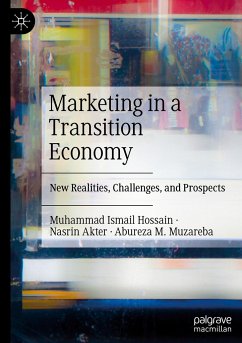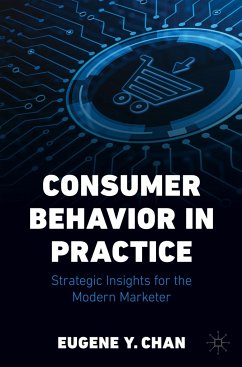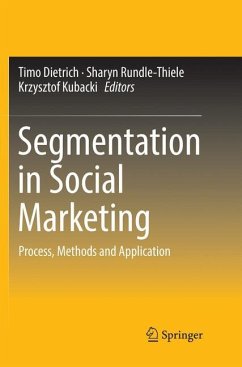
New Consumer Behavior Theories from Japan
Versandkostenfrei!
Versandfertig in 6-10 Tagen
121,99 €
inkl. MwSt.
Weitere Ausgaben:

PAYBACK Punkte
61 °P sammeln!
This book focuses on a new type of inclusive consumer decision-making process model (CDM) related to new leading-edge consumers. There have been two main types of CDMs for consumer behavior: one is the stimulus-response model and the other is the information-processing model. The stimulus-response model is applicable when consumers buy low-involvement products, and the information-processing model applies for high-involvement products. Thus consumers' decision making depends on the involvement level for the products. With the advent of the widespread use of the Internet, however, the situation...
This book focuses on a new type of inclusive consumer decision-making process model (CDM) related to new leading-edge consumers. There have been two main types of CDMs for consumer behavior: one is the stimulus-response model and the other is the information-processing model. The stimulus-response model is applicable when consumers buy low-involvement products, and the information-processing model applies for high-involvement products. Thus consumers' decision making depends on the involvement level for the products.
With the advent of the widespread use of the Internet, however, the situation has changed. Consumers whose information sensitivity is high (i.e., among leading-edge consumers) now use the Internet to search for information even for low-involvement products. The consumers' decision-making process depends therefore on their information sensitivity, not on the involvement level of the products. Also, these leading-edge consumers become in effect another type of media as they broaden their experience through the Internet.
Under these circumstances, research about leading-edge consumers and the introduction of a new CDM is highly significant. This book gathers data about leading-edge consumers, analyzes these data, then proposes a new type of CDM called "circulation marketing". Following this model, not only the previous types of CDM, but also the new kind of CDM, including share behavior of leading-edge consumers, is explained.
With the advent of the widespread use of the Internet, however, the situation has changed. Consumers whose information sensitivity is high (i.e., among leading-edge consumers) now use the Internet to search for information even for low-involvement products. The consumers' decision-making process depends therefore on their information sensitivity, not on the involvement level of the products. Also, these leading-edge consumers become in effect another type of media as they broaden their experience through the Internet.
Under these circumstances, research about leading-edge consumers and the introduction of a new CDM is highly significant. This book gathers data about leading-edge consumers, analyzes these data, then proposes a new type of CDM called "circulation marketing". Following this model, not only the previous types of CDM, but also the new kind of CDM, including share behavior of leading-edge consumers, is explained.












